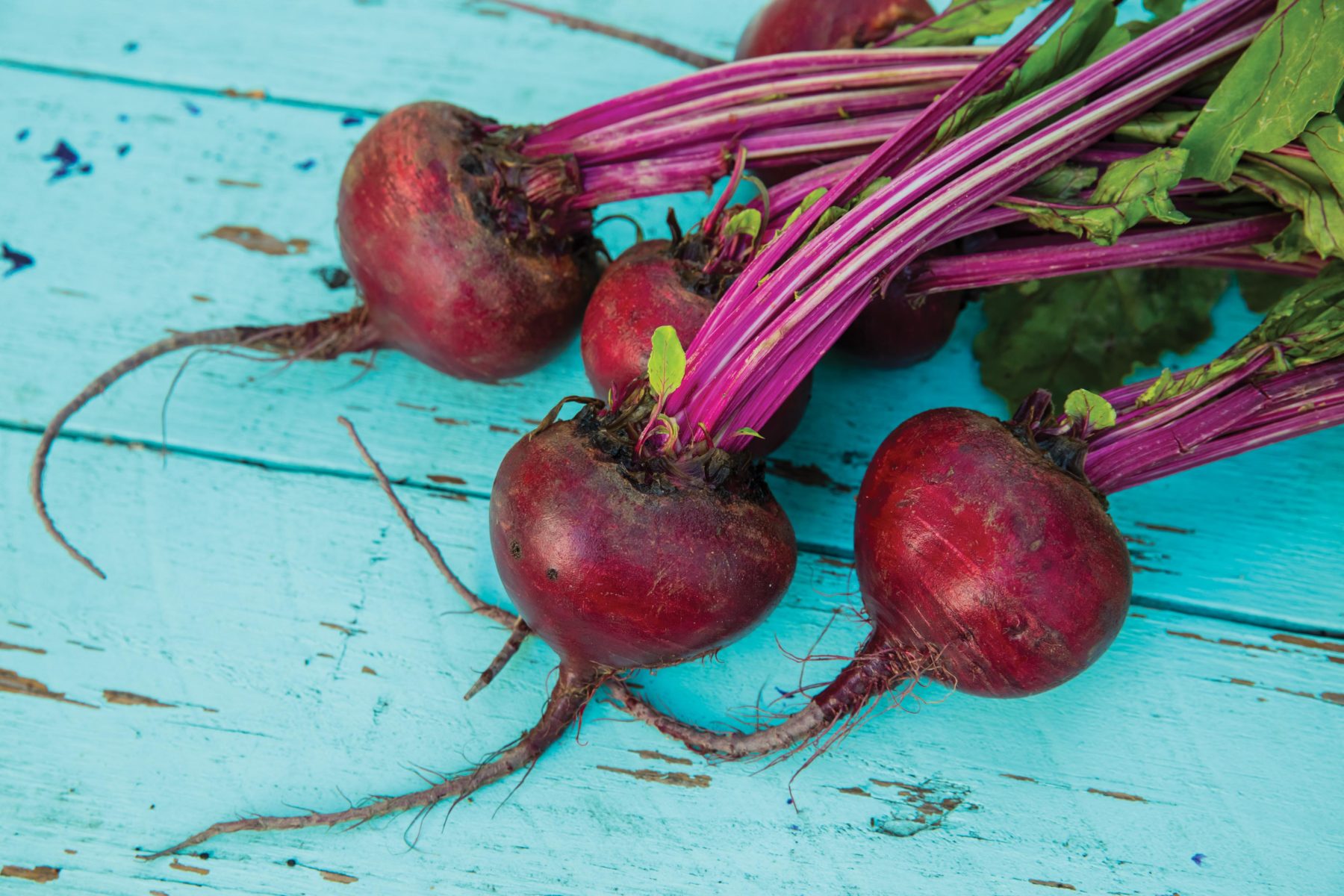How Beets Can Enhance Your Athletic Performance

We’ve all heard Dwight Schrute rave about the root vegetable known as beets, but now, athletes and wellness professionals everywhere are raving about the beet’s powers, too. So, maybe beets aren’t just a colorful addition to any salad — they might also help your heart health, athletic stamina and even your workout recovery. Here’s what you need to know.
Beet Science
It all started in 1998 when three American scientists won the Nobel Prize in Physiology or Medicine for their discovery of how the cardiovascular system reacts to nitric oxide. Nitric oxide, they found, acts as a signaling molecule for the system, a means for the blood vessels to expand and relax. That discovery has led to understanding and potential treatments for diseases and issues related to the vascular system’s reactions like erectile dysfunction and pre-eclampsia during pregnancy.
Why is this important to note for the beets? Well, there are only two main ways in which the body receives nitric oxide. The first is through a natural process in the body.
“The body naturally produces nitric oxide with the conversion of the amino acid L-Arginine with the enzyme nitric oxide synthase,” Shannon Dolan, an Austin functional nutrition therapy practitioner, says. “Physical activity can enhance this conversion, however with age this enzyme does decrease in function.”
The second way is through a conversion of the nitrates in our diet. Where are nitrates found? In all kinds of vegetables, but it is especially dense in beets.
Dolan explains that once nitrates are consumed, they are converted into nitrites by bacteria in the mouth. These nitrites travel through the digestive system until they are converted into nitric oxide in the small intestine. So, the more nitrates, the more nitric oxide.
However, this association didn’t become a major, sports-related interest until 2007, when Swedish scientists conducted an experiment to see if sodium nitrate supplementation would lower the body’s demand for oxygen for cyclists and triathletes. The finding showed that the test subjects taking the sodium nitrate did indeed have a lower demand for oxygen and had an increased level of nitrites in their blood plasma compared to those who took the placebo using only sodium.
This sparked the interest of an exercise physiologist in England, because the idea that the body’s demand for oxygen, an aspect that was typically known to be fixed, was a bit of a surprise.
Here’s where the beets come in.
Beets and Performance
That English physiologist then conducted his own experiment. This time, the subjects consumed either beet juice or blackcurrant juice — beets having some of the highest concentration of nitrates and the blackcurrant acting as the placebo. Each participant then drank their assigned drink for six days. Then, after a 10-day break, the groups would switch to drinking the other drink for another six days. In the end, the findings found that in the last three days of each cycle, the group drinking the beet drink had some impressive results.
For the beet drinkers, their nitrate blood concentration had just about doubled; their systolic blood pressure dropped by an average of six points; the amount of oxygen they consumed dropped by 19%; and when asked to work out until exhaustion, they were able to go for longer.
Since then, there have been all kinds of studies delving deeper into the benefits of beets for athletics and overall health. Now, companies like HumanN, Force Factor and Dynamic Health are utilizing the science supporting the power of beets to create products that aid in a range of wellness issues and athletic performance.

“If you look at it from the basic level here with the fact that nitric oxide improves the body’s ability to carry nutrients in blood throughout the body,” says Yancy Culp, athlete and Active Lifestyle Coach at HumanN, which makes a beet-based pre-workout. “It sounds to me like anybody besides a hemophiliac could benefit from such an improved circulatory system.”
The science is so convincing that pro athletes all over the world have begun harnessing the beet’s power as a pre-workout, and all kinds of individuals use it for blood pressure and overall health. Because of the improvement in blood flow and vessel dilation, blood pressure can be lowered, and overall blood circulation and oxygen delivery can peak. Even AFM’s Monica Brant of our monthly Kick Mo’s Butt series and Olympic athletes use a beet-based pre-workout supplement before each workout.
What to Know
There are some interesting tidbits to note if you begin utilizing beet juice or a beet-based wellness product. One is regarding that signature, deep red pigment associated with beets.
“One thing to keep in mind with consumption of beets is there may be a little pinker coloration when you go to the bathroom,” Dolan says. “No need to panic! Due to their powerful pink color, this is completely normal.”

Yancy Culp warns that not all beets are created equally when it comes to nitrate concentration. While some companies work to specially grow their beets to ensure the highest possible ratio per beet, the ones you grow in your own backyard may not be as potent. Keep this in mind when browsing products, and make sure you’re getting well-grown beet sources.
Another aspect he says to keep in mind has to do with the initial breaking down of the beet-based nitrates. Since that first step for nitric oxide conversion goes from nitrate to nitrite through bacteria in the mouth, you might need to be wary of your oral hygiene routine.
“For example, people that overuse mouthwash are constantly killing the bacteria in their mouth,” Culp says. “There’s research that shows that those who do that have lower nitric oxide levels in their bodies than people who don’t overuse mouthwashes.”
Culp says that even antacids can affect the levels of bacteria needed for nitrate conversion.
As someone who takes several different beet products to aid in a range of health topics, Culp says that some beet pre-workout options aren’t like what you’d typically associate with the “pre-workout” category because they’re not packed with caffeine.
“When most people think of pre-workout, they think of something that you really feel in your body — like you’re hovering to the gym, a drone ready to attack the weights,” Culp says. “But this pre-workout is strictly performance-based. You don’t feel any different — you just are able to go for longer or harder.”
Culp adds that while improved blood circulation helps fuel the body during a workout, it also helps in recovery.
“During recovery, circulation is important to ensure essential amino acids make it to the muscles to aid in repair, and blood circulation helps top off glycogen stores in preparation for the next training session or race.”
So, whether you’re looking for a new pre-workout or post-workout aid, beets just might be the miracle root you’re looking for. With a benefit as hefty as improved blood circulation, the possibilities for beets seem endless.






